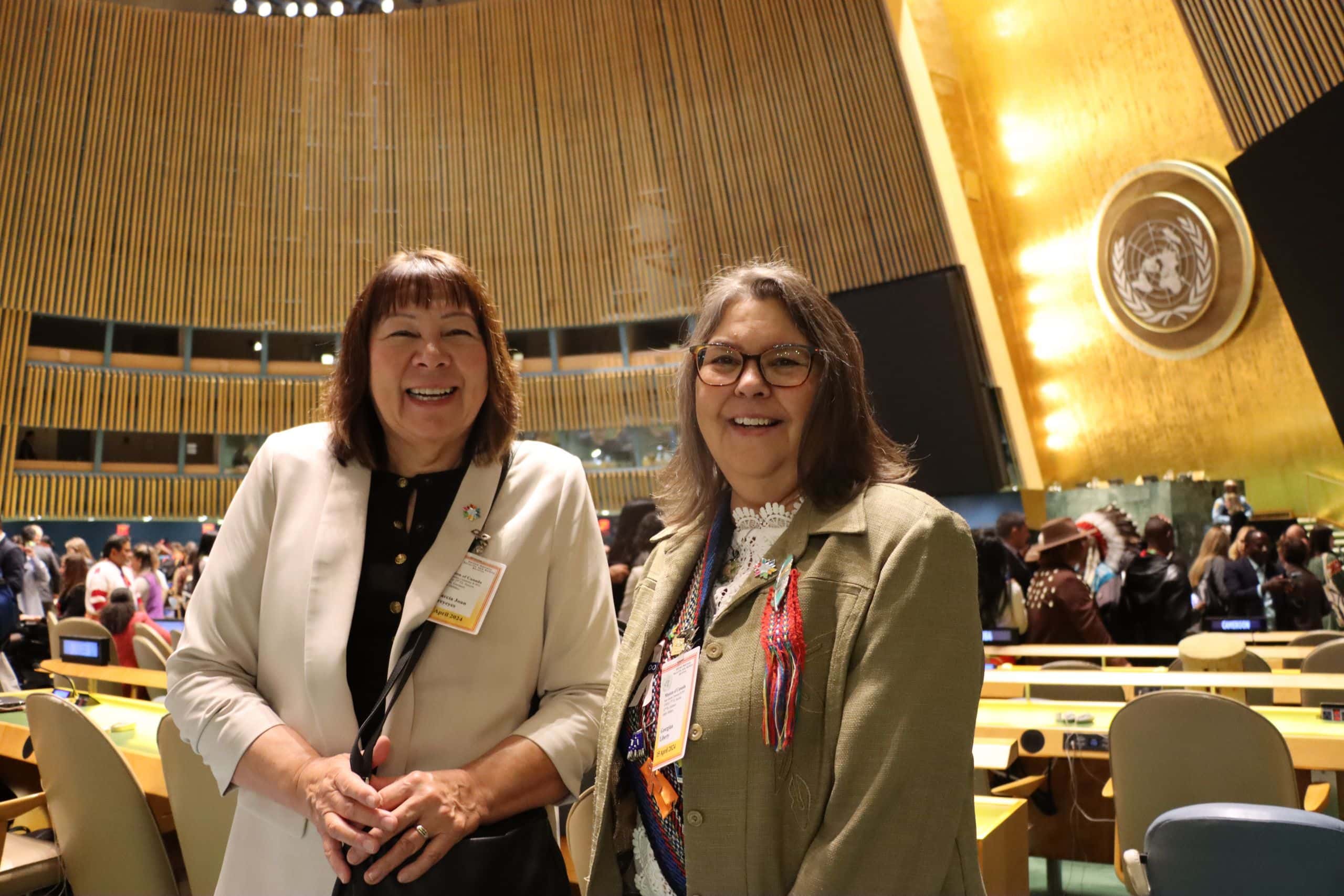

The Office of the Commissioner of Indigenous Languages (OCIL) jointly organized a side event with the Government of Canada (Canadian Heritage-Patrimoine canadien) during the UN Permanent Forum on Indigenous Issues at the UN Headquarters in New York.
Commissioner Ronald Ignace told a global assembly of Indigenous Peoples that Indigenous Peoples have the heart-felt desire to rescue their languages from the brink of extinction, and the knowledge and skills necessary to achieve this vital goal.
The April 16, 2024 side event was organized in the context of the International Decade for Indigenous Languages which began in 2022, and featured panel presentations by International Chief Wilton Littlechild (Cree); Nunavut Tunngavik Incorporated President Aluki Kotierk (Inuk); independent language consultant Brielle Beaudin-Reimer (Red River Métis); and Sámi Parliament member Mikkel Eskii Mikkeslsen (Sámi).

“This was the OCIL’s first chance to participate in the UN Permanent Forum, and we were humbled and thrilled to have so many delegates who chose to attend our side event,” said Director Georgina Liberty, who served as moderator for the panelists.
“The room was at full capacity. We had delegates from across Canada, as well as Asia, Africa, Europe, and Latin America. It really has been an inspiring week all around, and we look forward to the Commission’s future participation at the Forum, to building relationships with global Indigenous leaders, and hopefully providing inspiration for (and learning from) Indigenous language experts and communities around the world.”



To open the event in a good way, International Chief Wilton Littlechild offered a prayer, and Elder Leena Evik lit the traditional Inuk oil lamp, the Qulliq.


Canadian Member of Parliament Taleeb Noormohamed, Parliamentary Secretary to the Minister of Canadian Heritage, provided opening remarks in which he noted that it has been five years since Parliament adopted the Indigenous Languages Act, which established a legal obligation for the federal government to provide adequate, sustained funding for Indigenous languages.

This was followed by a brief address on the history of the OCIL and its mission, delivered by Commissioner Ronald Ignace. Director Joan Greyeyes presented the first screening of an OCIL-produced short film promoting Indigenous language revitalization efforts in Canada called, “Our Languages, Our Voices.”

The four panelists emphasized the importance of language recovery efforts being designed and led by Indigenous Peoples. They also emphasized the important role of states in providing adequate, sustained funding to support this vital work.

“You have to think in your language,” said International Chief Wilton Littlechild, a lawyer, former Truth and Reconciliation Commissioner, and Former Member of the Permanent Forum on Indigenous Issues at the United Nations. “If you hear our language spoken, you listen to it, and you translate it in your mind in English, and you come back in Cree. So, we have to think in Cree. So the key, they [the elders] say, is you have to learn, if you’re going to decolonize . . . to decolonize your own mind. In other words, think in your own language.”


Mikkel Eskil Mikkelsen noted that the loss of Sámi languages [in northern Europe] represented the largest visible effect of colonization (or “Norwegianization”) of the Sámi people, and like his fellow panelists, acknowledged there is a great deal of work ahead in the field of Indigenous language revitalization.
Brielle Beaudin-Reimer presented her initial findings from a research project sponsored by the OCIL, regarding Michif language fluency in historic community contexts. President Kotierk discussed challenges facing her community, including access to essential services with Inuktitut language options, and the need to increase Inuktitut use and fluency in the workplace. Both Chief Littlechild and President Kotierk expressed support for the negotiation of an international convention on Indigenous languages that would codify state obligations.


